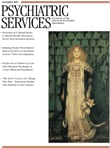Arthur and George
This novel is based on a true story that took place over 100 years ago in England, toward the end of the Victorian era. The Arthur in this book's title is Sir Arthur Conan Doyle, the creator of Sherlock Holmes. George is George Edalji, a man whose father is of Indian origin and is vicar in a small local church in the Midlands. Arthur grows up with all the advantages of the British aristocracy, and he becomes a doctor specializing in ophthalmology and a first-rate cricket player. George has led a very sheltered life, was bullied at school, and was inadequate at sports. He is shy and inhibited and remains closely attached to his parents and family. He qualifies as a solicitor and even writes a guide to railway law.
Their paths cross after George, now 27, has been falsely accused of brutally harming horses, convicted, and jailed. From the time of the first accusations, George, having great faith in the rightness of the law and of justice, naively believes that nothing will come of the accusations. Surely the police will see that there is no case, and when the police do make a case, George remains convinced that a court will see the glaring absence of any solid evidence linking him to the monstrous crimes. Yet the court finds him guilty.
At that time there was no court of appeal, and, therefore, the only recourse was a petition to a senior government minister known as the home secretary. George is released almost halfway through his sentence of seven years. Apparently the home secretary decided that the original sentence was excessive, but there is no explanation for the early release, no cancellation of the conviction, no apology, and no offer of compensation.
Because of his fame as the creator of Sherlock Holmes, Arthur receives numerous petitions asking him to prove that a person is innocent of the crimes he or she is supposed to have committed and should be released from prison. Someone has sent him George's compilation of his case petition describing the numerous frauds and errors that had been committed, and Arthur strives powerfully to clear George's name and obtain compensation for George and his reinstatement as a solicitor.
Arthur and George is the 12th novel by the English writer Julian Barnes. It develops the growth and characters of these two quite different men in great detail, and in doing so takes us into British life during that period. Readers see the class barriers and behaviors, the racial prejudice, the position of women and the attitudes toward them, the courts and prison system, and attitudes toward military service. Barnes' research has been meticulous, and in this beautifully written work he evokes life in those times in a manner that captures our ongoing interest.
There are many fine, subtle touches that the author offers us. In just half a page that reports a summary from a school principal about a more likely criminal suspect than George, we see how even a first-rate education system did not understand how to deal with below-average intelligence and appeared to believe that such a child must be exhibiting a failure of will that more and more beatings would eradicate.
Those of British origin or who enjoy visiting Britain will recognize vestiges of the attitudes and behaviors of the society described in this book that still persist and are responsible for what remain as the attractive aspects of a Britain that has developed into a very different society in recent years.



